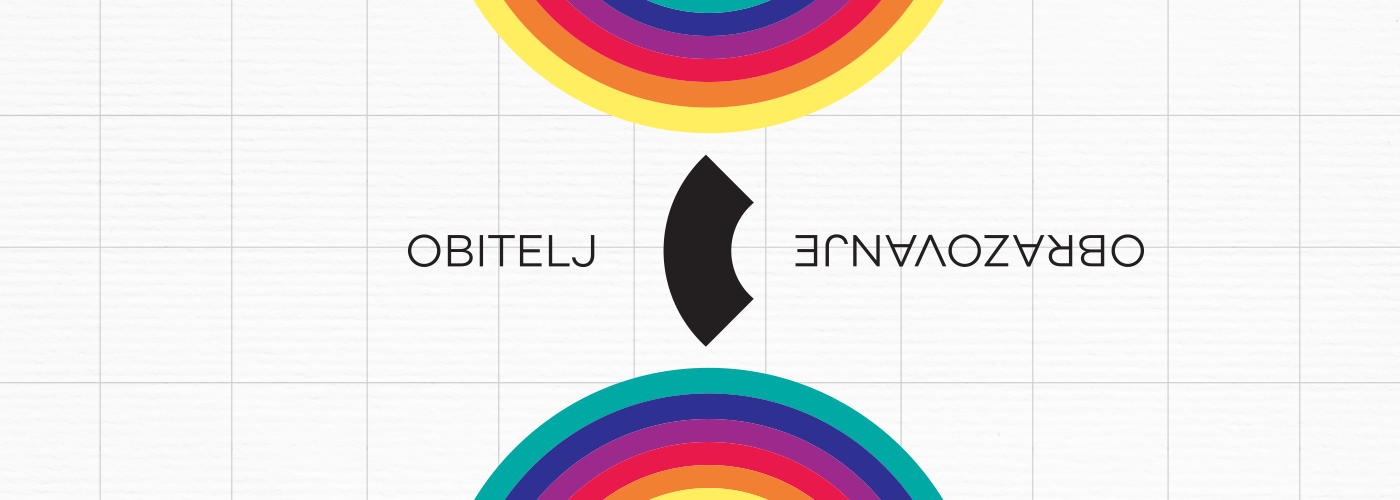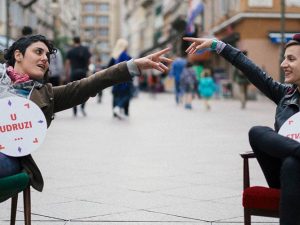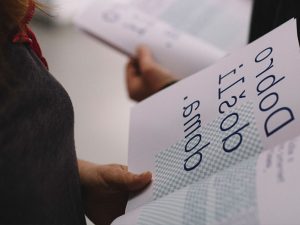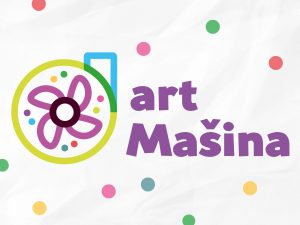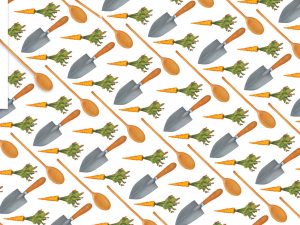Last year’s introduction of Health Education in schools raised a series of political questions. A few months later, the voters decided to include the definition of marriage as a union between a man and a woman into the Constitution of the Republic of Croatia. In that moment, 59, 3 % voters voted against such an inclusion. the project O-O (Obitelj i obrazovanje; Croatian for Family and Education) was realised as a reaction to that decision with the goal of the continuation of the dialog and affirmation of human rights, and was meant as a critical and creative exploration of the relations between the changes in the education system and conservation of the traditional concept of the family. The relation in question was analyzed and expressed through different types of media: intermedia exhibition, literature and culture studies research.
Each discipline used its own language to articulate the understanding of the raised issue. Their productions were followed by the research focused on the recognition of patterns in diverse receptions and interpretations of the issue. The result of the project was a two-day event: exhibition opening, literary evening and production of the booklet that remains as a material artefact of the synergy of different approaches to the common social problem after the project.
The project O-O aimed to connect the knowledge and skills gathered through the academia into the production of socially-critical content which is open to public due to its interdisciplinary nature. Also, by combining the scientific and the artistic production in a common exploration of the socially relevant questions, it stimulated the public to join the socially-engaged type of thinking about the offered content.
This is what made it aesthetically interesting, informative and, before all else, educational. In the light of candidacy for the European Capital of Culture, Rijeka has shown itself to be a fertile soil for the development of the values necessary for a bright future. By upholding these values, the sense of community was strenghtened during these complex, bewildering and in many ways problematic times. The project entered the public on the 30th of October, 2014 with the interdisciplinary exhibition O-O in Mali Salon, where the artists’ works presented their answer to the question: How do you see the connection between family and education? Their answers were intimate expressions and/or (critical) interpretations of the social events. The exhibition featured works by the following authors: Anja Sušanj, Liberta Mišan i Sara Salamon, Marko-Luka Zubčić i Damjan Šporčić, Rudi Kancijanić, Mario Pucić, Sandra Sterle, Vanja Tataj, Nika Rukavina, Tamara Mikler, Lea Jurin i Igor Beleš.
The project proceeded by presenting the booklet Public Houses, edited by Dunja Matić, on the 7th of November, 2014. The booklet contained the continuation of the exploration of the family-education relation through culture studies research.
The project was realised in association with the Museum of Modern and Contemporary Art in Rijeka and was supported by Student Culture Centre of the University of Rijeka, the Office for Culture of Primorje-Gorski Kotar County and the Museum of Modern and Contemporary Art in Rijeka.
Media response to the project
/// KombiCut ///
300 anthologies = 130 hours of japanese binding in 16,5 m2 (container)

